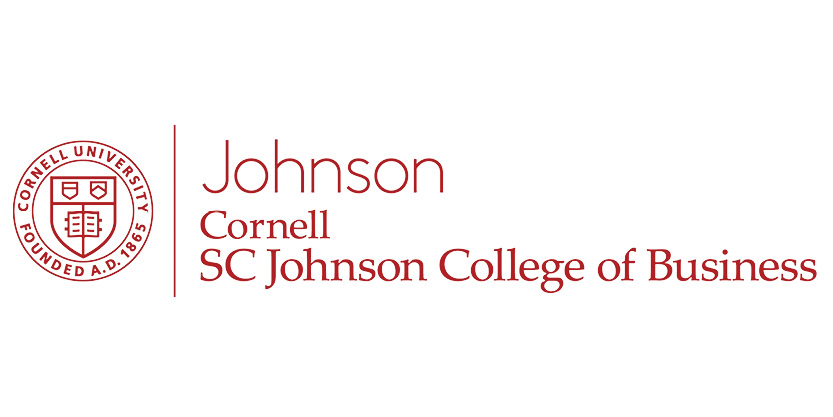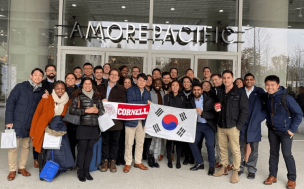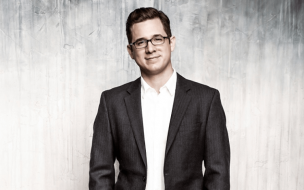Avery left a career in HR data analytics at hedge fund, Millennium Management, to join the MBA in 2018. She wanted to switch careers, and an internship in summer 2019 with Morgan Stanley was the perfect platform to get her feet wet.
She is set to return to the company as a full-time investment banking associate after graduating, in summer 2020. Avery is the latest in a line of Cornell MBA grads entering the industry. Being able to test the water during an internship is an integral part of the two-year MBA in the US.
“Johnson has a very strong track record placing students into investment banking," says David Capaldi, the director of the Career Management Center at the school. "Our conversion rate from internship to full-time offer has averaged over 85% for the past three years.”
Why an MBA?
Avery says she reached a point in her career where she missed the excitement of seeing the direct impact of her work—she was after a role geared towards project execution.
“I knew an MBA would help me open doors and make a career pivot,” she explains.
She was attracted to the immersion-based learning on the Cornell MBA, which involves a semester of practical learning and course/field work around a specific industry or career interest.
Alongside coursework, students are coached by leading business practitioners, and have to solve business problems under real-time working conditions. Avery opted for the investment banking immersion and explains that it was the main driver for her choosing the school.
“I knew for a career changer experiential learning experience would be invaluable, going into something I had zero background in.”
The benefits of an MBA internship
When it came to additional work experience, Avery jumped at the chance to do a summer internship with Morgan Stanley, as an investment banking summer associate.
Getting an internship with the company is testament to Johnson’s investment banking recruitment process. A “well-oiled machine”, says Avery.
Beforehand, she had an opportunity to network with a myriad of Johnson alumni working on Wall Street. She was also able to take multiple trips into New York City to interview at the banks and meet Morgan Stanley’s Cornell alumni team.
“I really enjoyed my experience,” she recalls. “It gave me a realistic perspective of what a career in investment banking would be like.
“I got broad exposure to different transactions and projects that bankers might work on. For me, I came into it doing test run of career paths I thought I would be interested in, and the internship helped solidify my interest in the field.”
How to make the most of the MBA internship
Getting an internship is just half the process. Once you’ve joined a company for the summer the emphasis is on you to do your utmost to impress during the eight-to-10-week period.
So, how do you make the most of it?
“I tried to be very present and take the initiative throughout the internship,” Avery explains. “I was always up for taking the lead on new projects or trying to have as broad a perspective as I could to get a better insight into all the different things bankers work on.”
Another big part of the internship is networking. Avery advises you to network with as many current employees as possible. Get to know the company outside of day-to-day tasks.
“I would tell anyone going into the internship to be open to all the different aspects of the experience, and to be introspective and brutally honest with yourself throughout that process.
“Constantly ask yourself if you’re happy with the experience, and if you could see yourself there post MBA. I think it’s a huge part of that research and investment in yourself to make sure you’re in the right place post MBA.”
Ask the right questions
The internship process is a two-way street. Ask the right questions, use it as an excuse to really find out if you’d be a good fit for the organization, and vice-versa, should a full-time role emerge.
“For me it was really important to find a place where I felt like I fit in not just with the culture of the team I was working with, but the overall bank culture.
“I asked a lot of fit-based questions and tried to be very introspective throughout the process. I asked myself is this a place I could see myself five, 10, or 15 years down the line,” Avery says.
She is also a campus ambassador and interviewer at Johnson. She speaks to a lot of prospective MBA students.
What’s the one key piece of advice she gives them?
“Take time before you start the MBA to research careers you might be considering, and continue to talk to current students about what they experienced throughout the recruiting process and internship.
“Some people, when they get into the MBA, that’s where they think they can take their foot off the gas and relax. I think it’s important to do a little leg work before you get to campus, so you have a bit more perspective and idea of what you want your career to be.”








